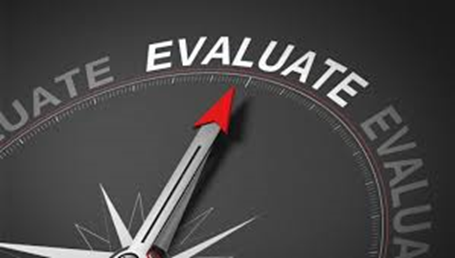Common Sense vs Common Practice
A primary focus of any coach is to help their client define current reality i.e. what is going well, what is not going well, what is priority, and what needs development or change. This would seem to make common sense; however, it is often met with reluctance, or at least with a sense of nervousness. As a result, I find it is often not common practice. I think one reason for this is that to define current reality, it is necessary to enter into a process of evaluation. And really, who enjoys evaluation? However, unless we are prepared to honestly evaluate our current reality, whatever it may be, we will never be able to identify the areas most in need of change and development.
Where does this reluctance come from? When I think of the concepts of evaluation/assessment/examination, my mind travels back to school days where pass or fail was the result. Or maybe job interview, where the result is, “you’re in or you’re out”. Or maybe your experience has been that those who evaluate are looking to find fault. Maybe that’s not the case for you, but for many of us it is, and unless addressed it can lead to an avoidance of evaluation. This is not what evaluation is about.
Some time ago, whilst teaching a group of emerging leaders, I was asked the question “What do I think is the most important attribute of a leader?” Well didn’t that start my mind racing. Being involved with leadership, leadership training and development, team building, organisational culture etc for more than three decades, so many possible answers raced through my mind. Perhaps a visionary! Perhaps great communication? Perhaps being strategic? Perhaps being highly approachable? And I could go on…
But… I was only asked for one thing. Somehow, and from somewhere, came the thought that a leader’s greatest attribute is to be willing to evaluate. To take a long honest look into performance, both his/her personal performance, team performance, and organisational performance.
Why do I believe this to be of such prominent value to a leader? Because if I am always willing to evaluate, (and make the necessary changes as a result), it will ensure I am on a continuous improvement cycle, and will therefore develop all of the other essential leadership attributes as they are identified as being current blockages to my progress.
Resources: So, what forms can evaluation take? These are many and varied, and here I list just a few:
- Self-evaluation – taking regular time to reflect on what you are trying to achieve and how you are going. This is important but can be unreliable if it’s the only form we use.
- Soliciting Feedback – regularly taking time to intentionally ask those around you what they notice.
- 360-degree feedback profiles – involves gathering specific feedback from supervisors, peers, subordinates around specific competencies or elements of a particular discipline. These are many and varied.
- E.G. a Leadership Effectiveness Profile identifies eight leadership competencies to be measured.
- A team building effectiveness profile identifies essential elements of team
One last word: I have stated that whilst evaluation is critical to a leader’s ongoing development, it is rarely comfortable. This is because any evaluation will identify areas of strength, but also areas that are potentially derailing us. For me, the most helpful resource I have to help me navigate this uncomfortable, yet necessary, process, is a coach. Someone I trust, someone who has my best interests at heart, and someone who will provide the challenge and support to work it all through. In other words, “someone in my corner”.




1 thought on “Evaluating – A Leader’s Most Uncomfortable Friend”